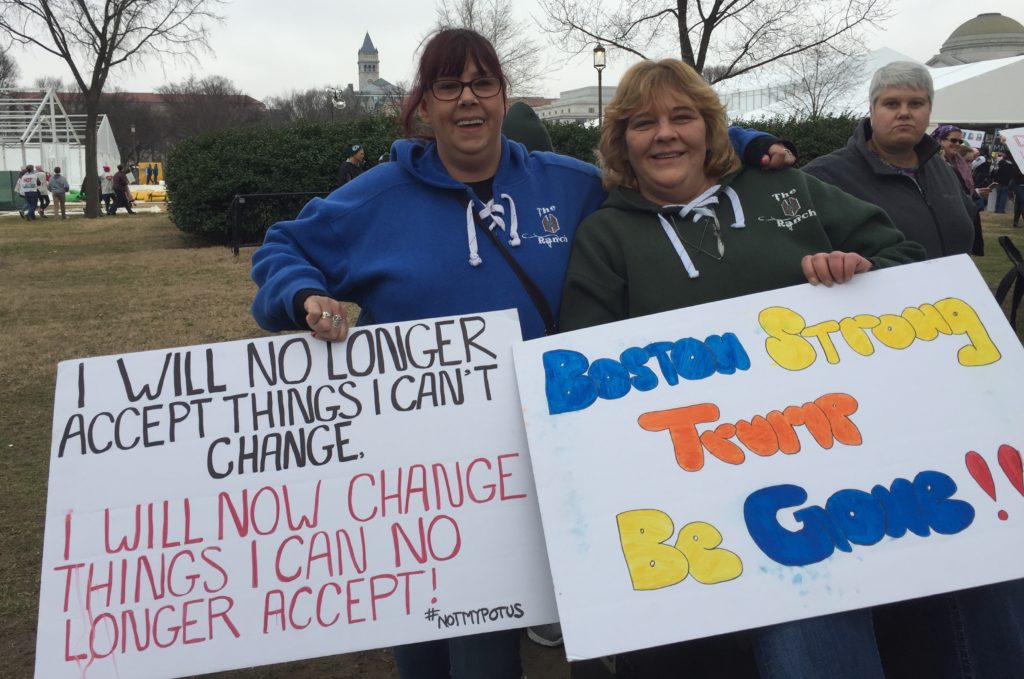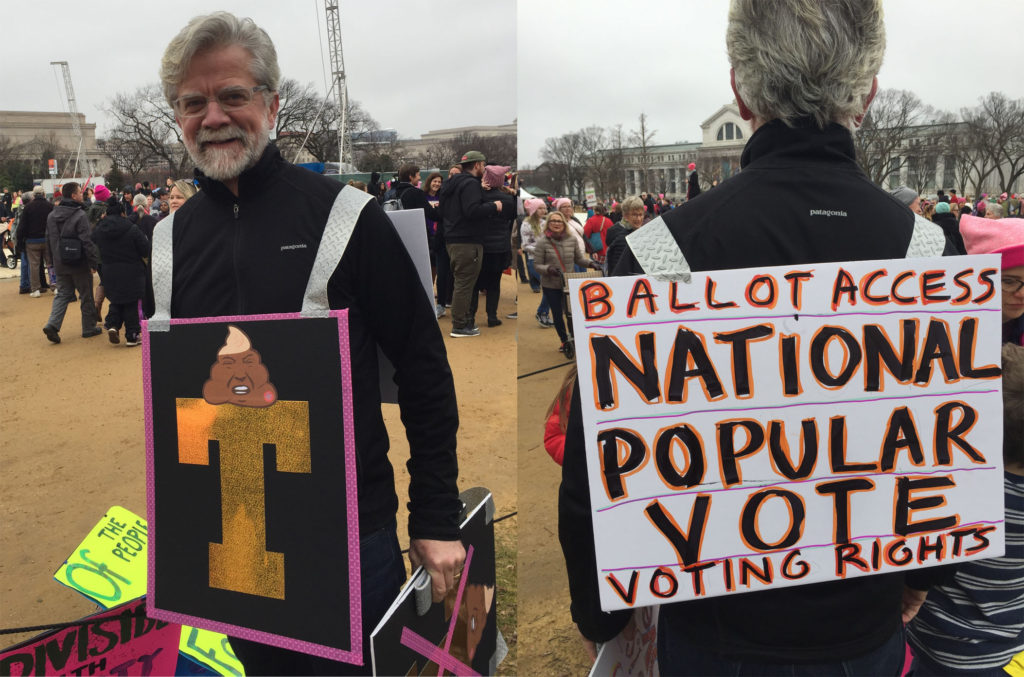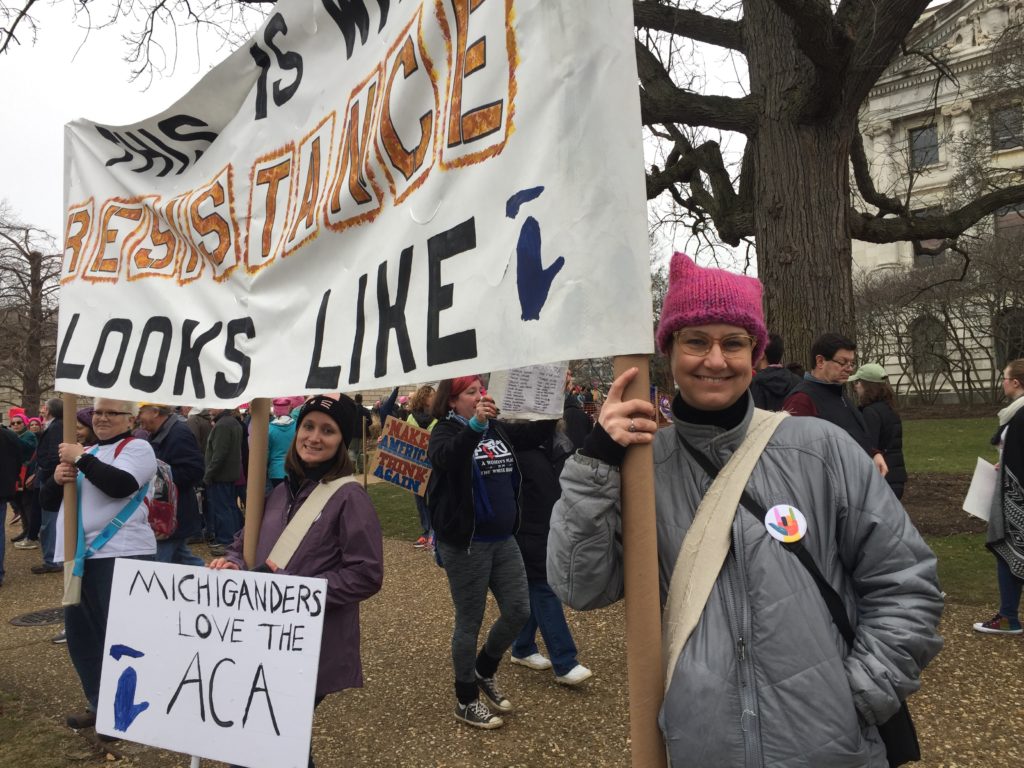January 23, 2017
Voices From The Women’s March On Washington

Protestors participate in the Women's March on Washington with the Washington monument in the background.
Hundreds of thousands of protesters flooded downtown Washington this past weekend for the Women’s March On Washington.
D.C. Mayor Muriel Bowser used her speaking role to educate those who attended the event on D.C.’s lack of congressional voting rights, at one point leading a chant calling out the federal government for intruding into local affairs.
Many of the participants in the march carried posters or led chants of their own boasting, “this is what democracy looks like.”
I was curious as to how many of those attendees were aware that local residents of D.C. don’t get to participate fully in the federal democracy – even though we live in the very heart of it.
Here are a few of the people I met – and some snippets of my conversations with them:
Nancy Bray and Brenda Sekenski

Brenda Sekenski and Nancy Bray traveled to D.C. from Massachusetts for the march. Both of them were aware of Washington’s lack of voting rights – and they said part of their frustration with politics is rooted in how much influence those with money have over the system. They said they make a distinction between local D.C. and political Washington, and that it’s unfortunate that so much outrage is directed at the city being the symbol of national politics.
Patrick Higgins

Patrick Higgins grew up in Washington, but he now lives in Seattle. He wore a sign to the march calling for a national popular vote, and lamented that not enough people outside or inside D.C. truly appreciate the city’s lack of voting rights.
Tracy Van der Bergh

Tracy Van der Bergh came to the march from Ann Arbor, Mich. She said income inequality is one of the issues she’s most worried about with the new Congress and White House. She also said people in cities or high-income communities can escape intellectual bubbles by forcing themselves to interact with those living under different circumstances.
Local activists in Washington are still figuring out how to engage with the new Congress, which has already moved to interfere several city laws. You can hear more about what the new political order in the White House and on Capitol Hill is likely to mean for local D.C. by checking out Monday’s edition of the show – when we talked to a pastor, an activist … and a bar owner.
All photographs by Michael Martinez


